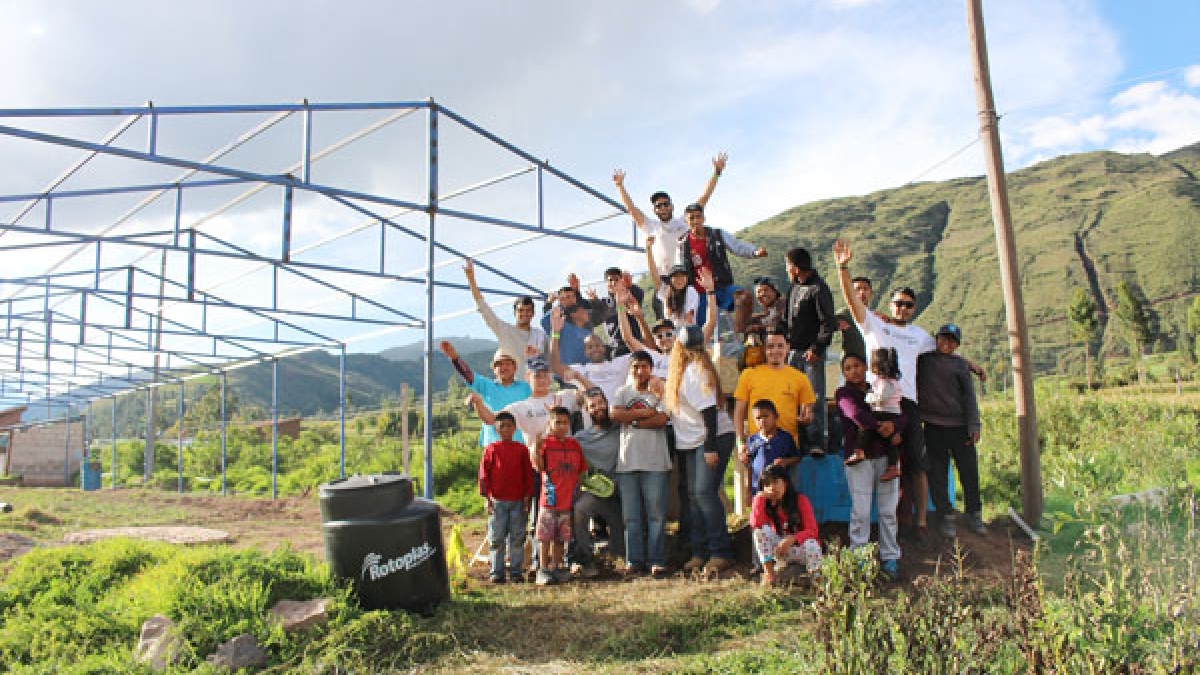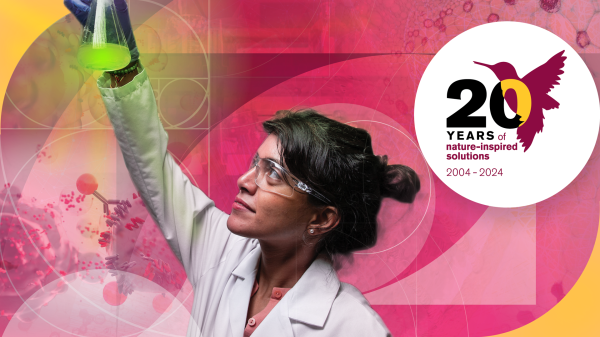GlobalResolve Club improves quality of life at Peruvian orphanage through engineering

Last year, members of GlobalResolve Club completed an aquaponics system for the children at Azul Wasi, an orphanage in Cusco, Peru. They'll return for the third consecutive year to continue improving the quality of life at the orphanage, this time setting up an off-grid solar panel system. Photo courtesy of GlobalResolve Club
For the third year running, Arizona State University students are headed to South America over spring break. However, unlike many students traveling this time of year, the group isn’t going on vacation. Rather, they’re using their vacation to improve the quality of life at the Azul Wasi orphanage in Cusco, Peru.
A team of students from the GlobalResolve Club will be setting up an off-grid solar panel system for the orphanage to meet their energy needs. In 2014 and 2015, the club built a greenhouse and an aquaponics farm with the goal of providing food and income for Azul Wasi. The club will depart on March 3 and return March 13.
The solar panel system will supply 3 kilowatts a day and save the orphanage an estimated $1,200 a year, according to Damian Gudino, team lead and student in the Ira A. Fulton Schools of Engineering. Those savings can then be applied to essentials for the children, like clothes and school supplies, Gudino said.
“We decided to go back because we want to see the relationship we have with this community grow,” said Gudino, who went on the trip last year. “Most humanitarian projects visit once, do their business, and then leave. They won't return to see how the community has improved.”
As well as the installation of the solar system, the club will be preforming maintenance on previous projects and doing STEM activities with residents.
“Not only will we be providing a reliable power source, but we'll be given the opportunity to inspire young kids to pursue STEM-related education and empower them to problem solve,” said Priscilla Perez, a freshman in the applied biological sciences program. “This trip caught my attention because it's an opportunity to apply my interests in a practical way that can positively impact someone's life.”
The team will be conducting different STEM activities with the children at the orphanage from an egg drop to learning programming with an Ardunio. Through these projects, the club hopes to encourage the children at the orphanage to pursue higher education.
“It’s been the single biggest achievement in my academic career,” said Andrew Fuentes, president of the GlobalResolve Club and environmental engineering senior, of the work in Peru. “It’s provided me the priceless opportunity to enact the change I want to see in the world.”
As club president, Fuentes has gone on the two previous trips to Azul Wasi. Along with a sense of personal fulfillment, he said he’s gained valuable hands-on experience in his field of study.
“I’ve learned that in engineering, nothing ever goes to plan. If anything, these trips have taught me to be adaptable and flexible when solving real-world problems.”
A transdisciplinary social entrepreneurship group, GlobalResolve Club undertakes projects that have a direct, positive impact on the lives of underprivileged people around the world. Working with faculty, international universities, non-governmental agencies and local people and governments, students lead projects that find innovative technological solutions to socio-economic problems.
“Every engineer should be a humanitarian, because engineers make the world a better place,” said Mark Henderson, director of Global Resolve, professor of humanitarian engineering and associate dean of Barrett, the Honors College. “GlobalResolve encourages the attributes that make a humanitarian that might not always be satisfied in traditional coursework.”
More Science and technology

ASU-led Southwest Advanced Prototyping Hub awarded $21.3M for 2nd year of funding for microelectronics projects
The Southwest Advanced Prototyping (SWAP) Hub, led by Arizona State University, has been awarded $21.3 million in Year 2 funding…

Celebrating '20 Years of Discovery' at the Biodesign Institute
Editor’s note: The Biodesign Institute at Arizona State University wraps up its 20th anniversary with the sixth and final…

Student research supports semiconductor sustainability
As microelectronics have become an increasingly essential part of modern society, greenhouse gas emissions, which are associated…